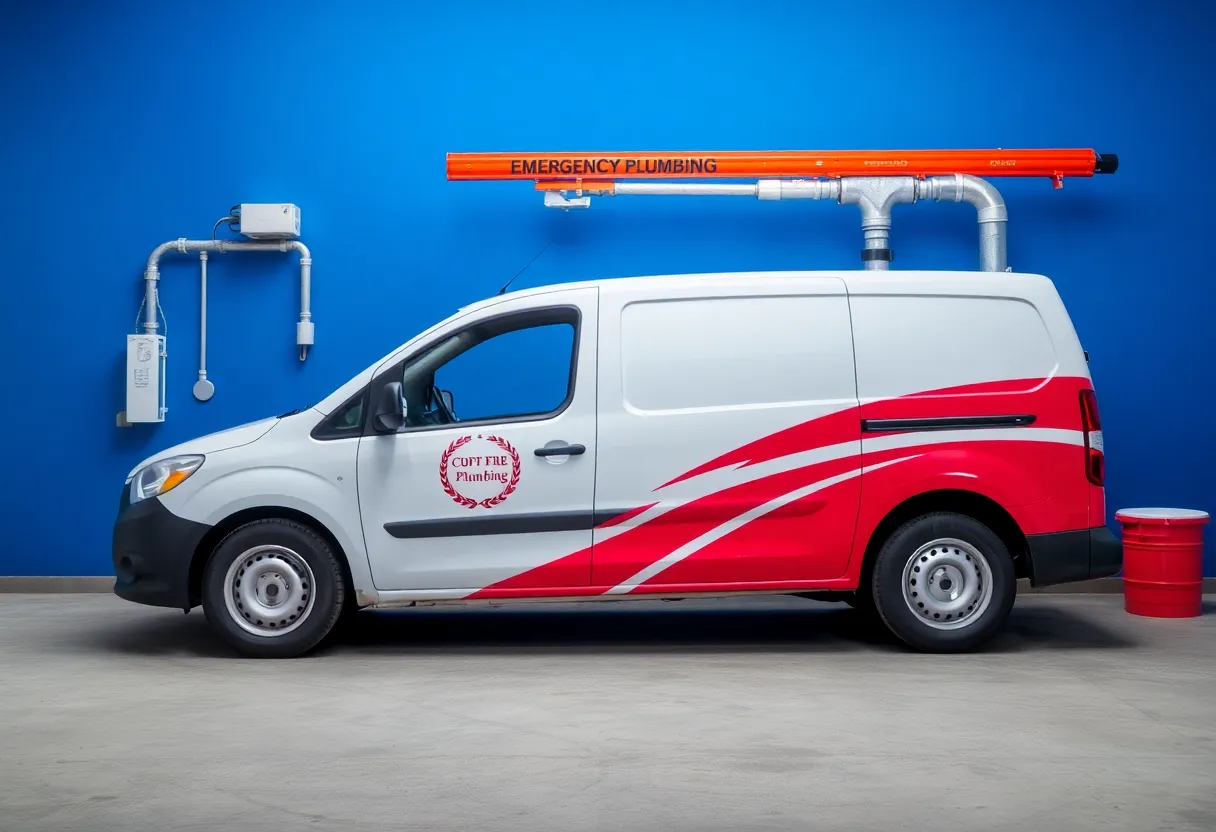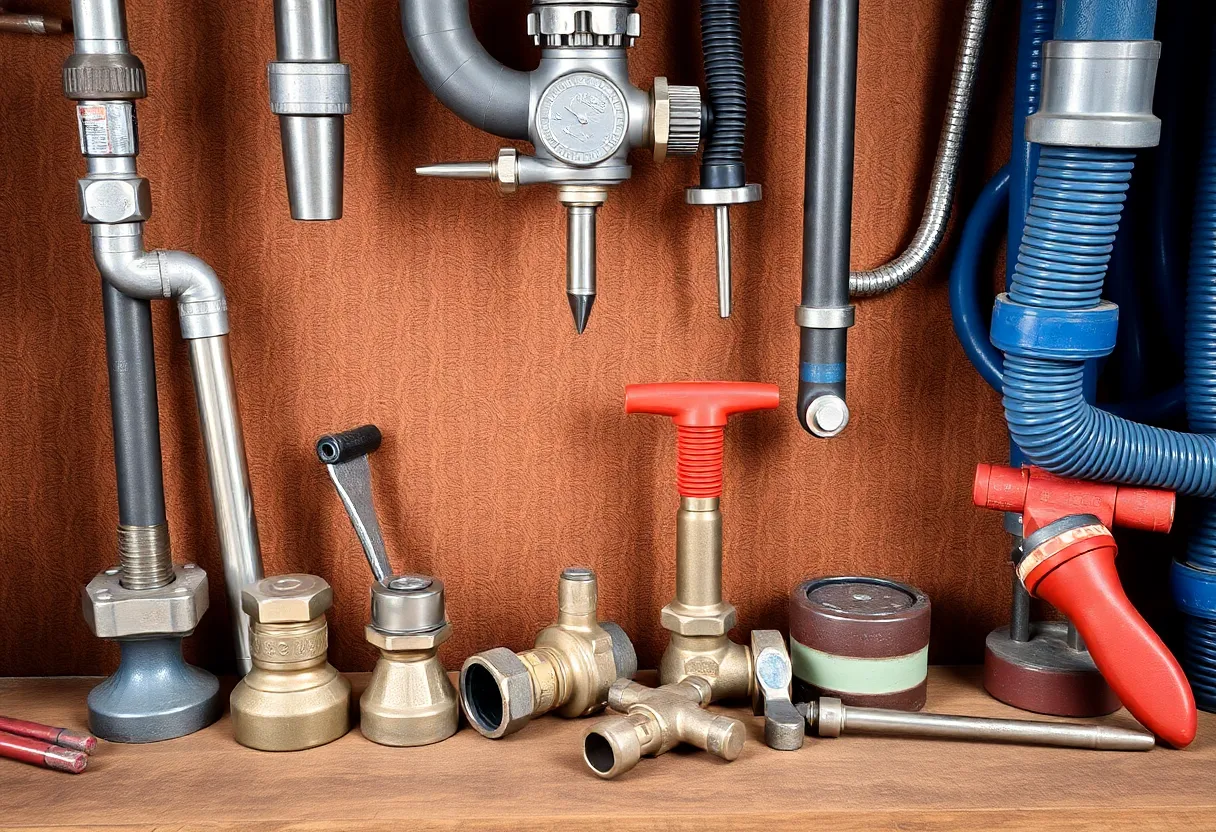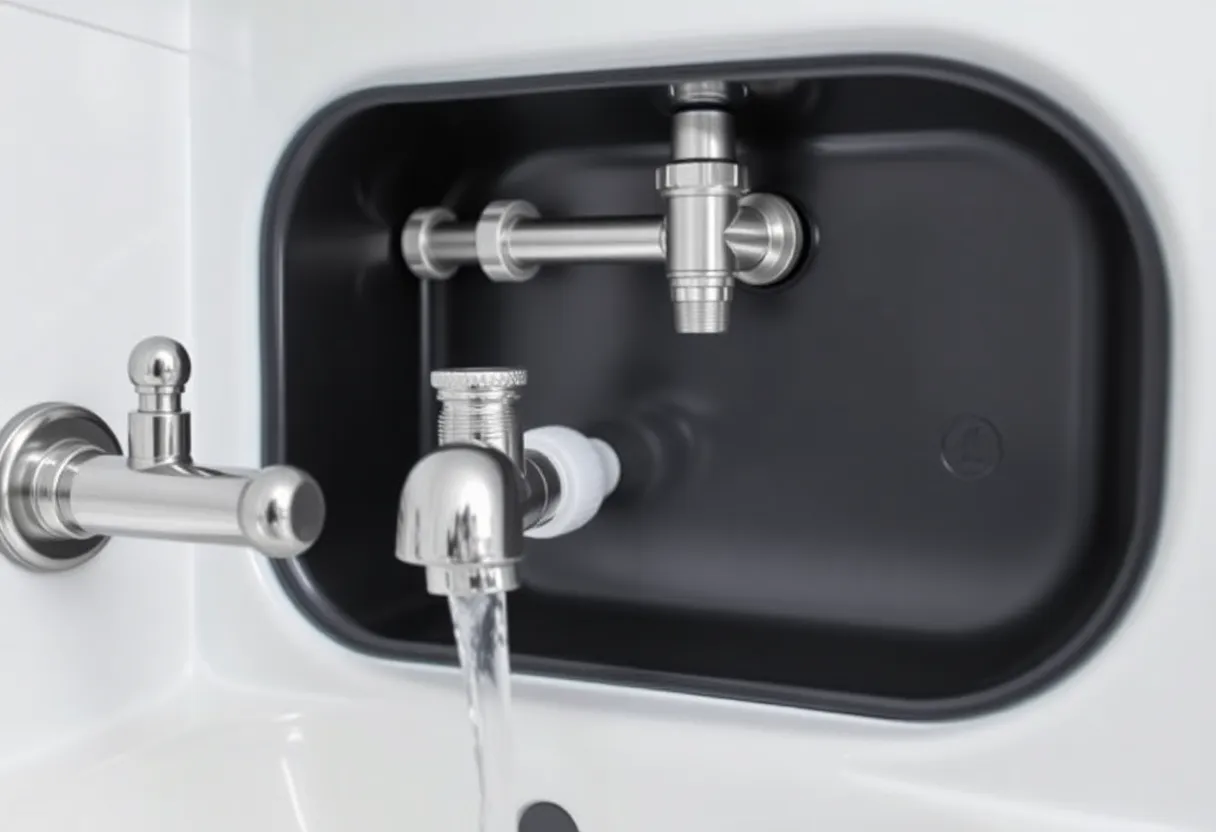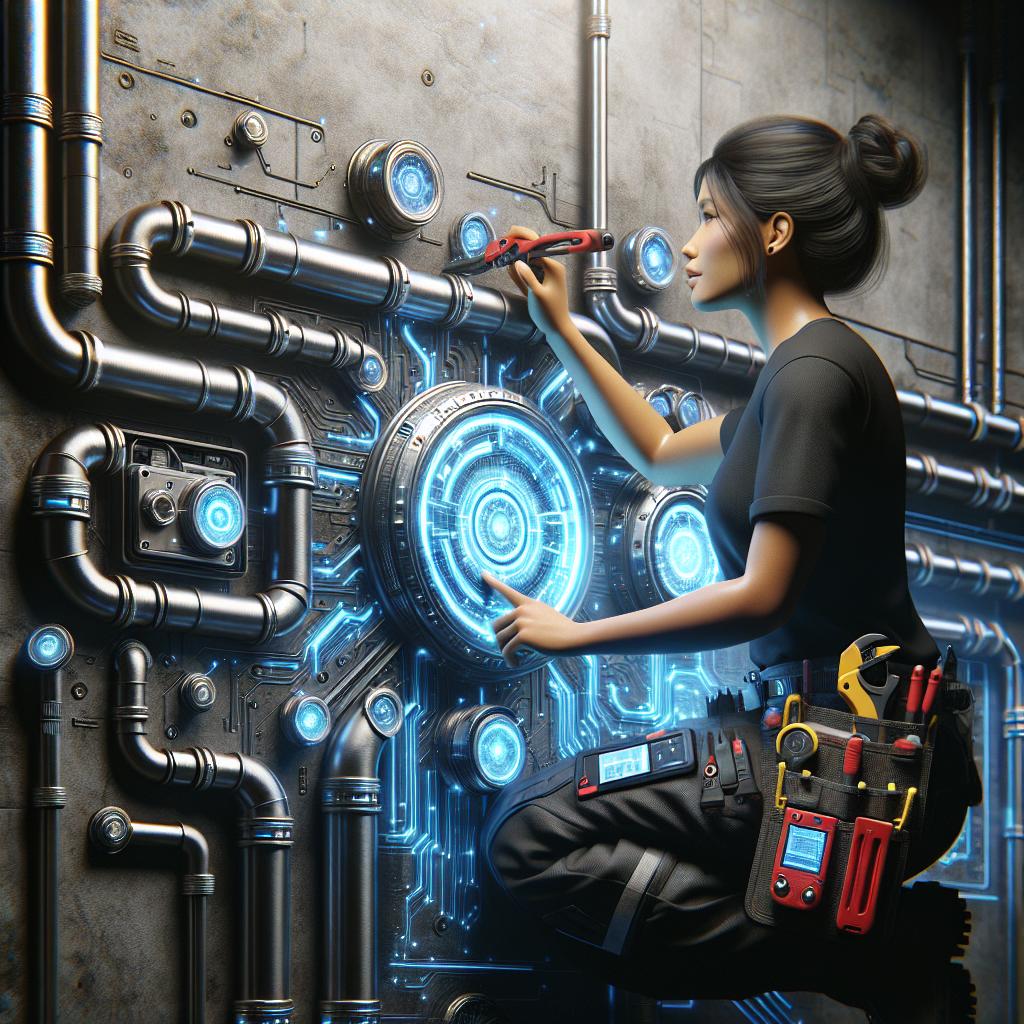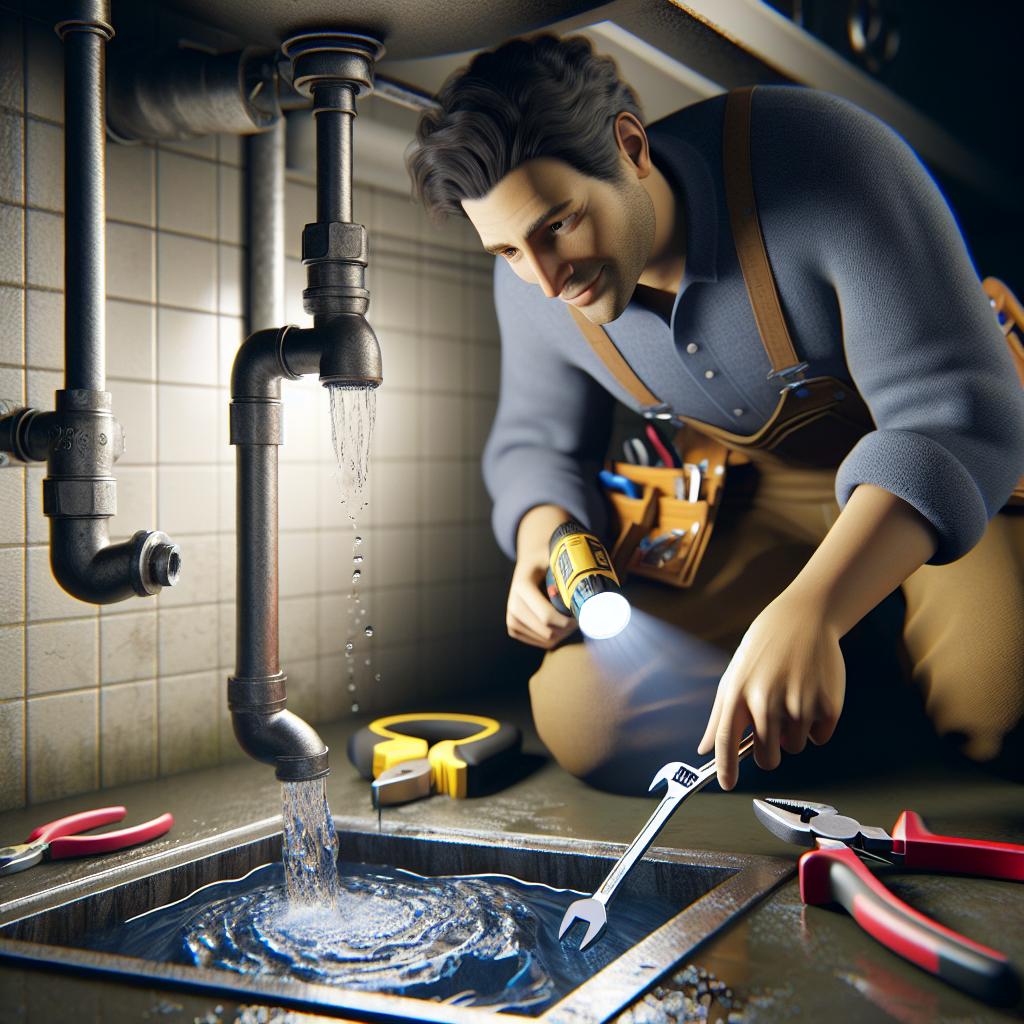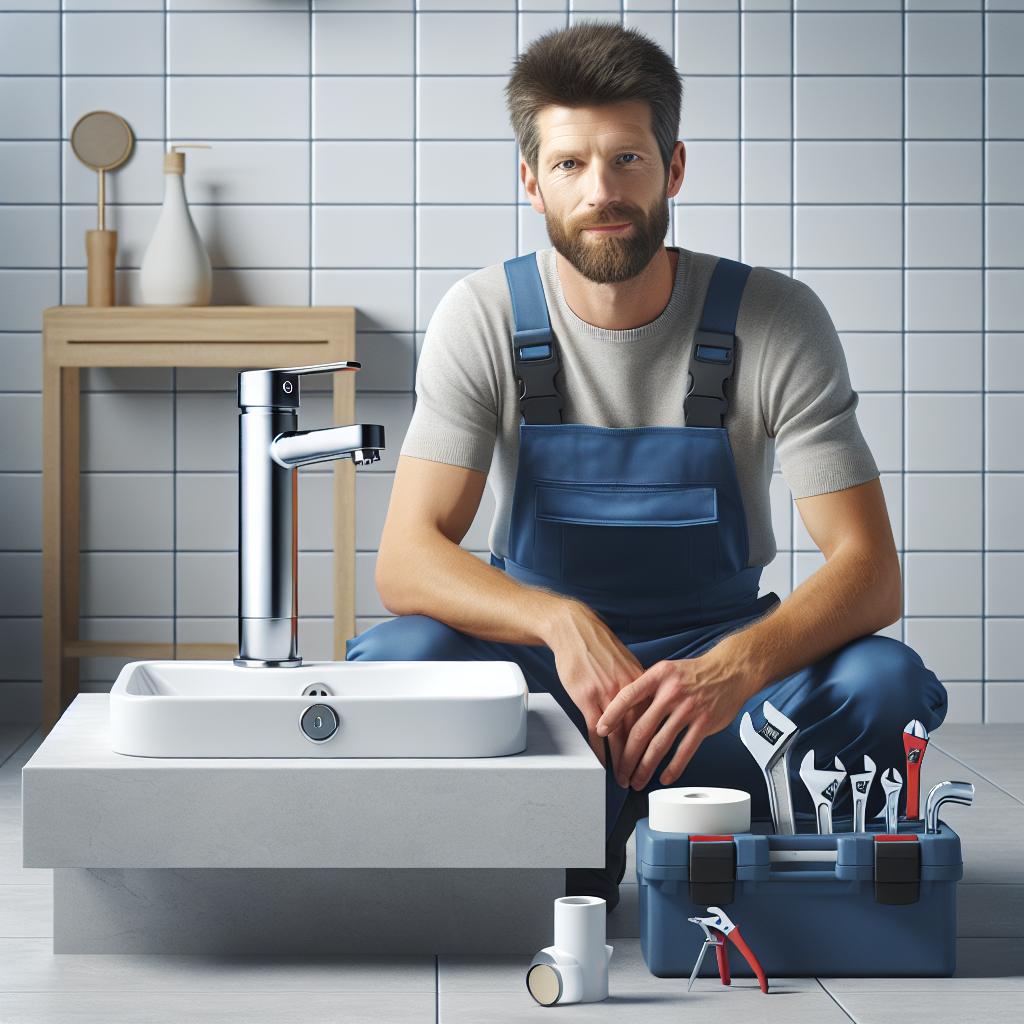Pipe Paradox: 10 Misunderstood Plumbing Principles That Could Save You a Fortune
The plumbing system of any building is often taken for granted until problems arise. Whether it’s a clogged drain or a leaky faucet, issues can quickly spiral into expensive repairs. Understanding the inner workings of plumbing can help homeowners avoid common mistakes and potentially save thousands of dollars in the long run. In this article, we explore 10 misunderstood plumbing principles that not only enlighten but could also save you a fortune.
1. The Importance of Pipe Materials
One of the most common misconceptions is that all pipes are created equal. In reality, the material of the pipes used in your plumbing system plays a significant role in its efficiency, longevity, and overall performance. Here’s a breakdown of common pipe materials:
- Copper: Known for its durability and resistance to corrosion, copper pipes are often preferred for water supply lines but can be expensive to install.
- PVC (Polyvinyl Chloride): Lightweight and easy to work with, PVC is great for drainage and venting applications but shouldn’t be used for hot water.
- PEX (Cross-linked Polyethylene): A flexible, cost-effective option for both hot and cold water supply, PEX is gaining popularity for its ease of installation.
- Galvanized Steel: Once common, galvanized pipes are prone to rust and corrosion and are being phased out in favor of more modern materials.
Understanding these materials helps you make informed decisions about repairs or replacements, preventing costly mistakes.
2. The Role of Pressure: Too Much of a Good Thing
Many people assume that higher water pressure is better for their plumbing system. However, excessive pressure can lead to serious problems. Here’s why:
- Leaky Fixtures: High pressure can wear out seals and cause faucets and toilet connections to leak.
- Pipe Damage: Over time, high pressure can weaken pipes, leading to cracks or bursting.
- Increased Water Bills: If your system operates at unnecessarily high pressure, it can dramatically increase your water usage and bills.
Investing in a pressure regulator can help maintain optimal levels, reducing wear and tear and saving you money over time.
3. The Myth of Drainage: Always Go Downhill?
An age-old belief is that drainage systems rely solely on gravity. While gravity plays a crucial role, it’s not the only factor at play. Several crucial elements contribute to effective drainage:
- Pipe Slope: Ideally, horizontal drain pipes should have a slope of 1/4 inch per foot to allow proper flow.
- Ventilation: Vent pipes are essential to equalizing pressure in the drainage system, preventing vacuum formation that can block drainage.
- Pipe Size: The diameter of the pipes influences drainage efficiency; smaller pipes may clog more easily.
Understanding these principles can lead to more efficient drainage solutions, preventing clogs and backups.
4. Temperature Matters: Hot vs. Cold Water
Many homeowners believe that any water temperature works for all plumbing tasks. However, temperature can affect your plumbing system in several ways:
- Pipe Material Suitability: Some materials, like PVC, are not suitable for hot water, while PEX can handle both.
- Water Heater Efficiency: Extremely high temperatures can lead to more scale buildup in your water heater, reducing efficiency and lifespan.
- Energy Costs: Heating water to unnecessary high temperatures incurs additional energy costs.
Assessing the appropriate temperatures for various tasks can lead to longer-lasting fittings and components.
5. The Traps You Never Knew You Had
Plumbing traps are often overlooked but are essential for maintaining a healthy plumbing system. Here’s what you should know:
- Functionality: Traps prevent sewer gases from entering your living space and keep unpleasant odors at bay.
- Maintenance: Traps should be cleaned out regularly to avoid clogs.
- Different Types: S-traps, P-traps, and drum traps serve various applications and require specific maintenance approaches.
Staying aware of trap maintenance can prevent foul smells and plumbing failures.
6. Clogged Drains: Prevention is Key
Clogged drains are among the most frequent plumbing issues homeowners face. Many mistakenly assume a quick fix, such as plunging, will suffice. However, understanding the causes can lead to better prevention strategies:
- Use Drain Screens: Installing screens or strainers can catch hair and debris, minimizing clogs.
- Avoid Chemical Drain Cleaners: These can damage pipes and often offer only temporary relief.
- Regular Maintenance: Scheduling periodic professional cleanings can keep drains flowing freely.
By adopting these behaviors, homeowners can save on potentially costly repairs associated with clogs.
7. The Hidden Costs of DIY Plumbing
While DIY projects can save money, plumbing is one area where caution is advised. Many mistakenly believe that minor repairs can be handled without professional help. Consider the following:
- Incorrect Installations: Poorly executed repairs can lead to leaks, necessitating more extensive repairs.
- Code Compliance: Not adhering to local plumbing codes can result in fines and an inability to sell your home.
- Hidden Damage: Problems such as water damage behind walls may go unnoticed until significant damage has occurred.
Weigh the pros and cons of DIY plumbing carefully to avoid incurring hidden costs down the line.
8. Water Softening: More Important Than You Think
Hard water affects millions of households, yet many homeowners underestimate its impact. Here’s why investing in a water softener could be a wise decision:
- Appliance Longevity: Hard water causes scale buildup in appliances like dishwashers and water heaters, shortening their lifespan.
- Skin and Hair Health: Softened water can be gentler on your skin and hair, reducing irritation from harsher minerals.
- Efficiency: Softened water allows soaps and detergents to work more effectively, saving you money on cleaning products.
Considering the benefits of a water softener is crucial for long-term savings and well-being.
9. The Impact of Insulation
A well-insulated plumbing system is often overlooked but vital for both energy efficiency and plumbing protection. Here are critical aspects of insulation:
- Preventing Freezing: Insulating pipes in unheated areas minimizes the risk of freezing and bursting during colder months.
- Temperature Maintenance: Insulation helps maintain hot water temperatures, reducing energy costs.
- Noise Reduction: Insulated pipes can also mitigate sounds associated with water flow.
A simple commitment to insulation can prevent significant plumbing issues and save you money.
10. Seek Professional Advice
Finally, one of the most vital principles is recognizing when to seek professional help. Many homeowners delay consultations, but understanding when to call can prevent high costs:
- Frequent Issues: If the same problem recurs, a professional can diagnose underlying issues.
- Home Renovations: Any significant changes to your plumbing should be handled by a qualified plumber to ensure code compliance.
- Knowledge Gaps: If you’re unsure about any plumbing tasks, it’s best to consult experts to avoid costly mistakes.
Proactively seeking professional advice can save you from high repair bills and complicated plumbing disasters.
Conclusion
The world of plumbing is filled with myths and misconceptions that can lead to costly mistakes. By understanding these 10 misunderstood plumbing principles, homeowners can take the right steps to maintain their plumbing systems effectively. Investing time in learning about your plumbing can lead to significant financial savings, giving you peace of mind as you manage your home. Remember, knowledge is power, and in the realm of plumbing, it can lead to a fortune saved.






